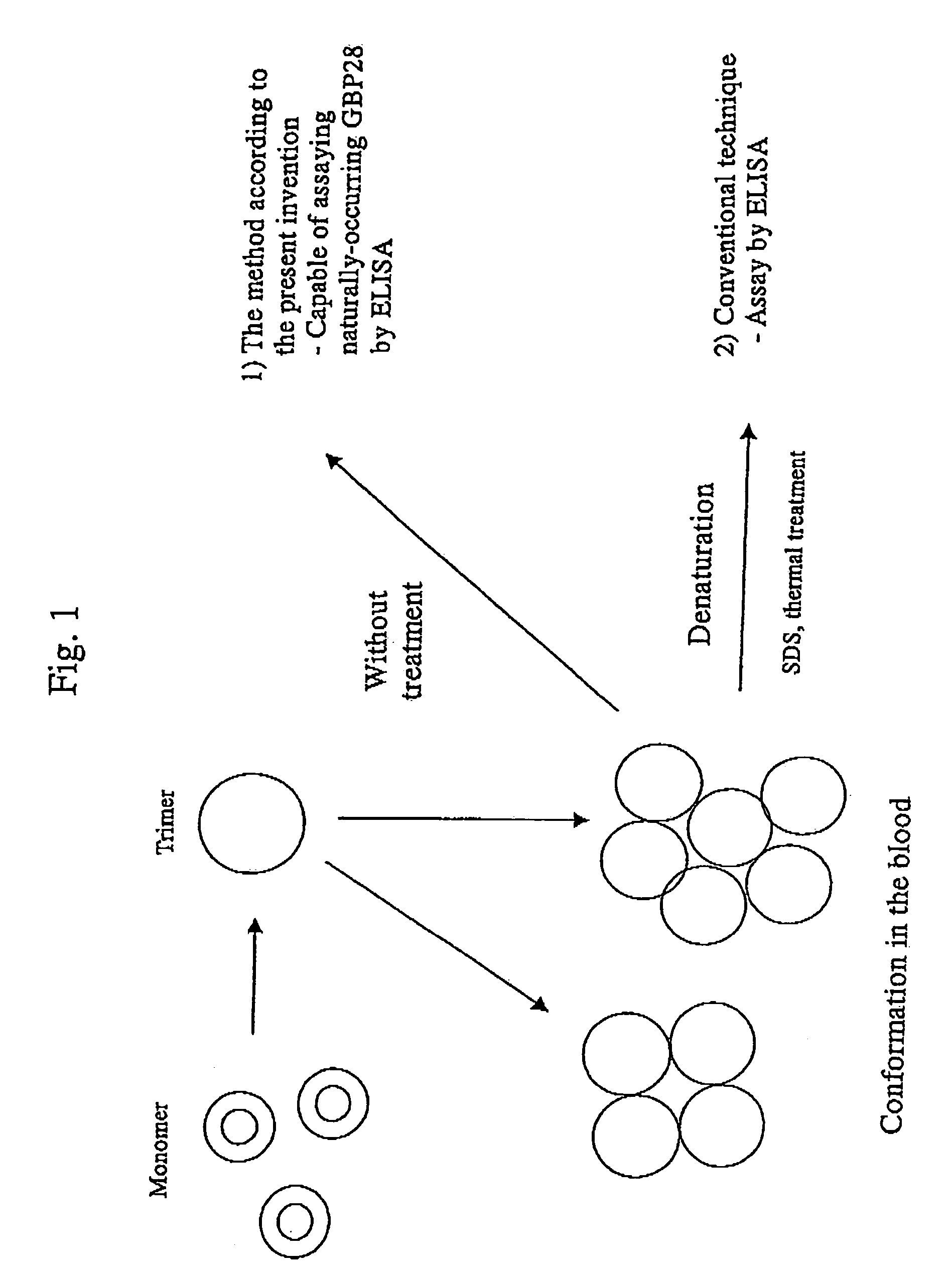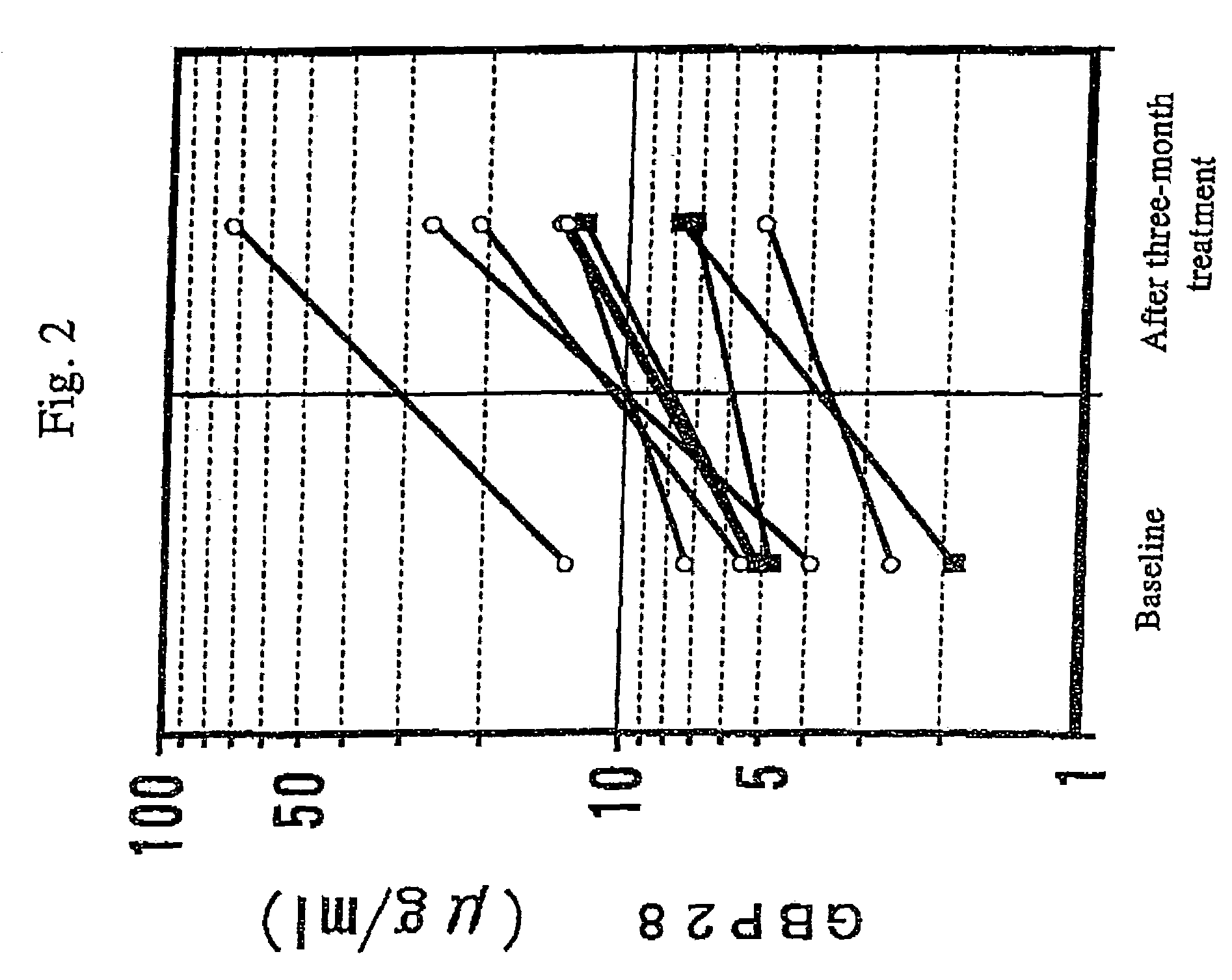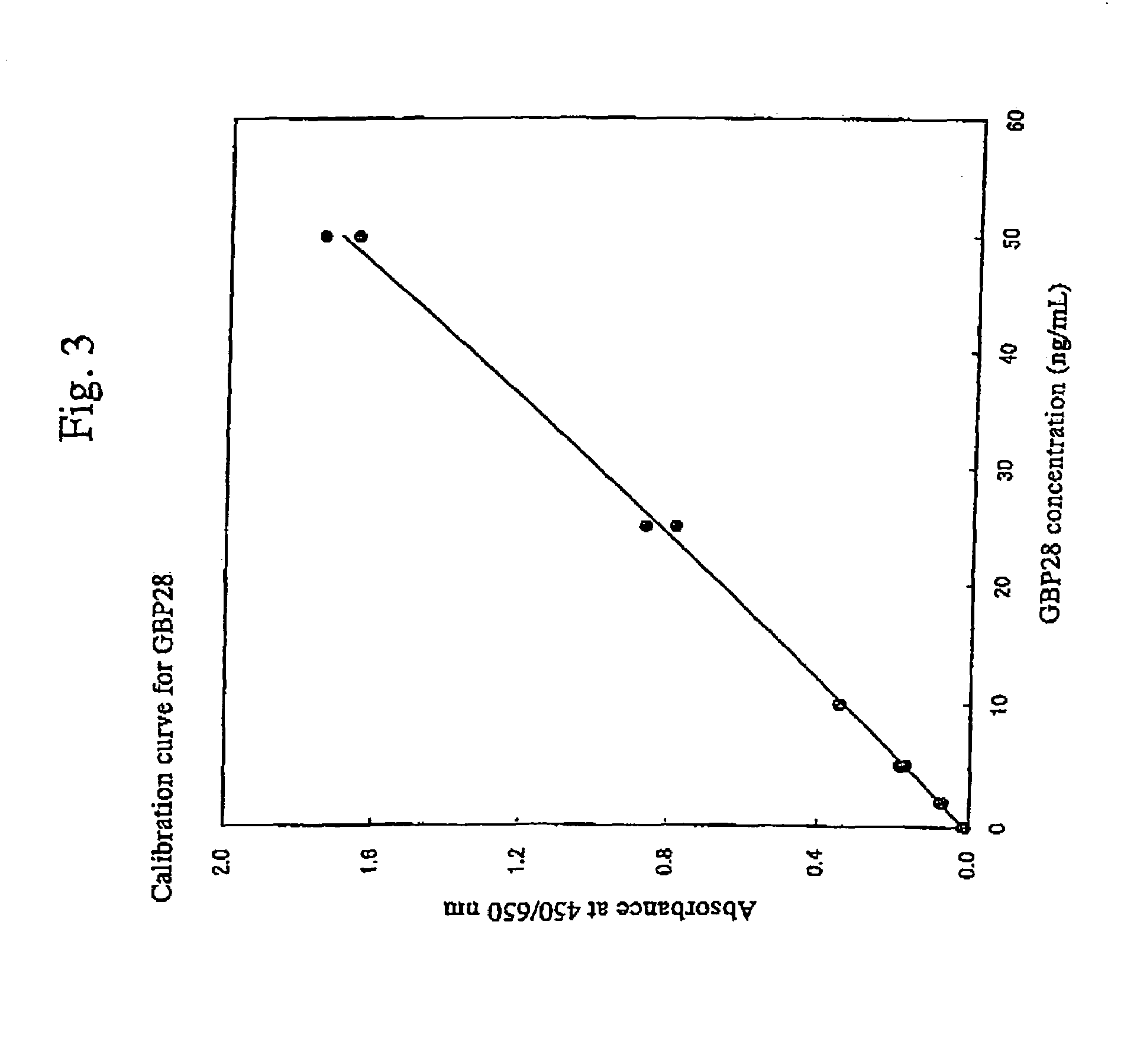Method for diagnosing or monitoring carbohydrate metabolism disorders
a carbohydrate metabolism and metabolic disorder technology, applied in the field of carbohydrate metabolism disorders, can solve the problems of lowering the levels of blood glucose, glycohemoglobin, serum insulin, and factors, and insufficient operability and/or sensitivity indicators, and not sufficiently clarifying whether or not gbp28 is actually applicabl
- Summary
- Abstract
- Description
- Claims
- Application Information
AI Technical Summary
Benefits of technology
Problems solved by technology
Method used
Image
Examples
example 1
Assay of Each Parameter
[0055]10 male patients with type II diabetes (ages: 40 to 66, 57.7±7.4) either being only under diet therapy (n=7) or being under diet therapy and on medication of sulfonylurea (n=3) were subjected to inspection regarding the following parameters before and after a three-month administration of a thiazolidine derivative, pioglitazone. Body weights, blood glucose levels, and blood pressure levels of those patients and treatments for them were at constant levels for at least 3 months before the examination. The sulfonylurea doses for 3 patients were at constant levels during that period. Pioglitazone was administered to all 10 patients after breakfast every day (orally, 30 mg / day). The ages, the body mass indices (BMI), and the clinical profiles of patients at the time of initiation are shown in Table 1.
[0056]
TABLE 1Clinical Profiles of Patients with Type II DiabetesParameterRangeN10Age (years) 57.4 ± 7.4 [ 40–66 ]Height (cm)164.2± 5.2[ 156.0–171.6 ]Weight (kg)...
example 2
Assessment of Body Fat Distribution
[0064]The patients who had been also employed in Example 1 were subjected to the assessment of body fat distribution before and after the three-month administration of pioglitazone. Distributions of subcutaneous fat and visceral fat were determined by assessing the region of a Hounsfield unit of −150 to −50 by a method modified from the computerized tomography (CT) scan at the level of the navel by Tokunaga et al. (Tokunaga, K. et al., Int. J. Obes. 7: 437–445, 1983). CT images at the baseline and after a three-month treatment were taken in accordance with the same protocols that had been previously reported by the present inventors (Kawai, T. et al., Metabolism, 48: 1102–1107, 1999). The V / S ratio was calculated by dividing the visceral fat area (VFA) by the subcutaneous fat area (SFA). The results are shown in Table 3.
[0065]
TABLE 3Effect of three-month administrationof pioglitazone on body fat distributionAfter theRate of changesParameterBaseline...
example 3
Assay of GBP28
[0068]The patients who had been employed in Example 1 were also subjected to an assay of the blood concentration of GBP28 before and after the three-month administration of pioglitazone.
[0069]The anti-human GBP28 monoclonal antibody was prepared in the following manner. First, a solution of GBP28 (about 50 μg) isolated and purified from human serum was micellized with a complete adjuvant, and the resultant was administered to a mouse intraperitoneally. Two weeks later, the mouse was subjected to booster, the spleen was extirpated 3 days thereafter, and the B-cell was collected. The B-cell and the myeloma cell were allowed to fuse with each other to prepare hybridomas, and a hybridoma of interest was administered to a mouse intraperitoneally. Thereafter (20 days later), ascites was processed with DEAE-Sepharose Fast Flow, and the monoclonal antibody of interest was obtained.
[0070]GBP28 was assayed by ELISA in the following manner. A standard GBP28 sample, a 441-fold-dil...
PUM
| Property | Measurement | Unit |
|---|---|---|
| concentration distributions | aaaaa | aaaaa |
| pH | aaaaa | aaaaa |
| concentration | aaaaa | aaaaa |
Abstract
Description
Claims
Application Information
 Login to View More
Login to View More - R&D
- Intellectual Property
- Life Sciences
- Materials
- Tech Scout
- Unparalleled Data Quality
- Higher Quality Content
- 60% Fewer Hallucinations
Browse by: Latest US Patents, China's latest patents, Technical Efficacy Thesaurus, Application Domain, Technology Topic, Popular Technical Reports.
© 2025 PatSnap. All rights reserved.Legal|Privacy policy|Modern Slavery Act Transparency Statement|Sitemap|About US| Contact US: help@patsnap.com



